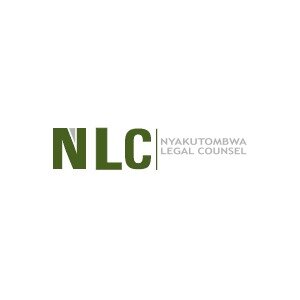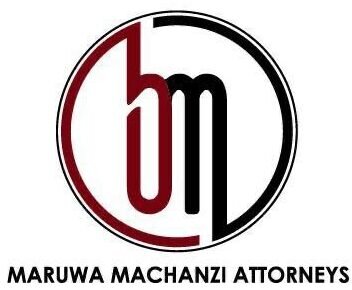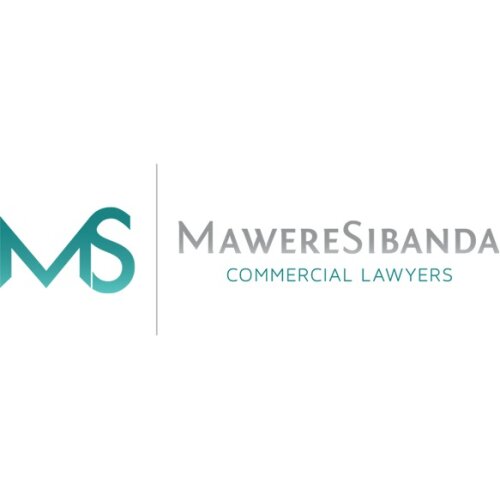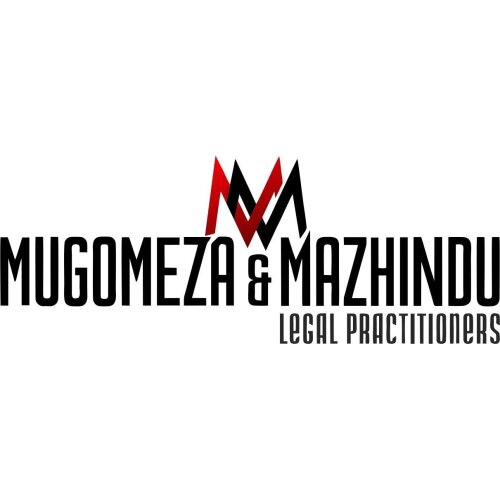Best Project Finance Lawyers in Zimbabwe
Share your needs with us, get contacted by law firms.
Free. Takes 2 min.
Or refine your search by selecting a city:
List of the best lawyers in Zimbabwe
About Project Finance Law in Zimbabwe
Project finance refers to the funding of large-scale infrastructure or industrial projects, such as power plants, roads, mines, and telecommunications, where repayment primarily comes from the revenue generated by the project itself. In Zimbabwe, project finance has become vital due to the growing need for both local and foreign investment in key development sectors. The legal landscape combines various laws and regulations that aim to protect the interests of investors, project sponsors, lenders, and the government while ensuring the sustainable growth of the nation’s infrastructure and industry.
Why You May Need a Lawyer
Engaging in project finance can be complex and often involves multiple stakeholders, including government entities, multinational corporations, financial institutions, and contractors. Here are some common situations where legal help is essential:
- Negotiating complex contracts- including loan agreements, shareholder agreements, and joint venture arrangements
- Navigating government regulations- such as permits, concessions, and environmental approvals
- Conducting due diligence to assess project feasibility and risk
- Structuring and securing project finance deals to protect against financial, regulatory, and operational risks
- Resolving disputes related to breaches of contract, financing issues, or regulatory non-compliance
A lawyer experienced in Zimbabwean project finance law can help safeguard your interests and ensure all aspects of your project comply with local laws.
Local Laws Overview
Project finance in Zimbabwe is governed by a blend of statutes, regulations, and policy guidelines. Some key aspects include:
- Investment Laws- The Zimbabwe Investment and Development Agency Act regulates foreign and local investment, granting approvals and providing incentives.
- Banking and Finance Regulations- The Banking Act and related Reserve Bank of Zimbabwe guidelines provide the regulatory framework for lending and borrowing, exchange control, and currency regulations.
- Environmental Laws- The Environmental Management Act mandates environmental impact assessments (EIA) for major projects and sets out compliance requirements.
- Public-Private Partnerships (PPP)- The Joint Ventures Act and PPP Policy facilitate public sector participation in projects through joint ventures with the private sector.
- Sector-Specific Legislation- Laws governing mining, energy, water, communications, and transport infrastructure apply depending on the nature of the project.
- Land Use and Property Laws- These govern land acquisition, leases, and property rights essential for most infrastructure projects.
Understanding these legal frameworks and how they interact is crucial for achieving financial closure and operational success in Zimbabwean projects.
Frequently Asked Questions
What is project finance, and how does it differ from traditional corporate finance?
Project finance relies on the projected cash flows of a specific project for repayment, with the project's assets, rights, and interests as collateral. In contrast, corporate finance usually depends on the balance sheet and creditworthiness of the parent company.
Who are the main participants in a project finance deal in Zimbabwe?
Participants typically include project sponsors, lenders (such as local and international banks), contractors, government agencies, and sometimes multilateral development institutions.
Is foreign investment permitted in Zimbabwean project finance?
Yes, Zimbabwe encourages foreign investment, especially in infrastructure and industrial projects. HOWEVER, there are specific approval processes and sectoral restrictions that must be observed.
What key documents are required for a project finance transaction?
Commonly required documents include term sheets, loan agreements, security agreements, shareholder agreements, government approvals, and environmental impact assessments.
Are there restrictions on repatriating profits or funds?
Foreign investors can repatriate profits subject to compliance with local exchange control regulations and payment of any applicable taxes.
What environmental considerations must be met?
Major projects require approval from the Environmental Management Agency (EMA), including the submission and clearance of an environmental impact assessment.
How are disputes in project finance typically resolved?
Disputes may be resolved through negotiation, arbitration, or litigation, depending on the contract terms. Many large deals include arbitration clauses specifying neutral venues or institutions.
Are government guarantees common in Zimbabwean project finance?
In some cases, especially in public sector or PPP deals, the government may provide guarantees to enhance creditworthiness and attract financing.
Can land be used as collateral in a project finance deal?
Yes, but the form of security and rights over land depend on the type of land (freehold, leasehold, or customary) and the relevant property laws.
How long does it take to close a project finance deal in Zimbabwe?
The timeline can vary significantly depending on project complexity, parties involved, and regulatory approvals. On average, it may take several months to more than a year to achieve financial closure.
Additional Resources
If you are seeking more information, the following institutions and resources can be helpful:
- Zimbabwe Investment and Development Agency (ZIDA) - the primary body for investment facilitation and approvals
- Reserve Bank of Zimbabwe - responsible for banking regulations and exchange control
- Environmental Management Agency (EMA) - for environmental compliance and EIA requirements
- Zimbabwean Ministry of Finance and Economic Development - for public finance policies and public-private partnership guidelines
- The Law Society of Zimbabwe - for finding qualified lawyers experienced in project finance
- Industry chambers such as the Confederation of Zimbabwe Industries and Zimbabwe National Chamber of Commerce
Next Steps
If you are considering embarking on a project finance transaction in Zimbabwe, here are the recommended steps:
- Define the scope and nature of your project, identifying key stakeholders and objectives
- Engage an experienced project finance lawyer early in the process to guide you through legal frameworks and risk assessment
- Conduct due diligence on the project's feasibility, funding sources, and regulatory requirements
- Work with your legal team to draft and review all necessary agreements and to secure the relevant government permits and approvals
- Maintain transparent communication with all parties to prevent misunderstandings and to facilitate dispute resolution if needed
- Leverage professional associations or regulatory bodies for up-to-date information and sector-specific guidance
Navigating the legal landscape of project finance in Zimbabwe requires careful planning and trusted legal advice. Taking the right steps from the outset will help ensure your project's success.
Lawzana helps you find the best lawyers and law firms in Zimbabwe through a curated and pre-screened list of qualified legal professionals. Our platform offers rankings and detailed profiles of attorneys and law firms, allowing you to compare based on practice areas, including Project Finance, experience, and client feedback.
Each profile includes a description of the firm's areas of practice, client reviews, team members and partners, year of establishment, spoken languages, office locations, contact information, social media presence, and any published articles or resources. Most firms on our platform speak English and are experienced in both local and international legal matters.
Get a quote from top-rated law firms in Zimbabwe — quickly, securely, and without unnecessary hassle.
Disclaimer:
The information provided on this page is for general informational purposes only and does not constitute legal advice. While we strive to ensure the accuracy and relevance of the content, legal information may change over time, and interpretations of the law can vary. You should always consult with a qualified legal professional for advice specific to your situation.
We disclaim all liability for actions taken or not taken based on the content of this page. If you believe any information is incorrect or outdated, please contact us, and we will review and update it where appropriate.
Browse project finance law firms by city in Zimbabwe
Refine your search by selecting a city.

















